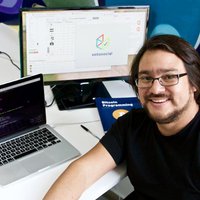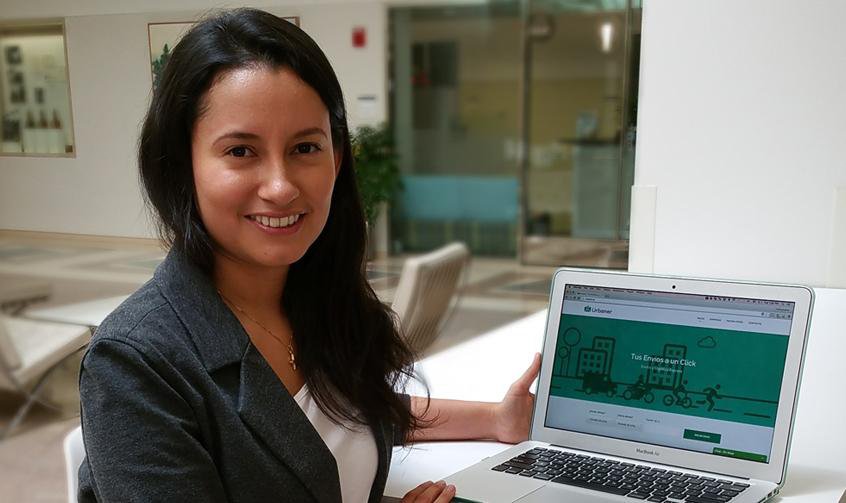"Ivonne Quiñones is a young, Peruvian engineer accustomed to purchasing via the internet. She belongs to a generation that acquires all kinds of articles at the click of the mouse. But the speed of these electronic transactions disappears when it comes time for shipping. From small companies to Linio, the largest ecommerce enterprise in the region, shipping periods stretch from two to five days. To address this problem, Quiñones founded the startup Urbaner.
Urbaner is a digital logistics platform (a website and app for smartphones) that uses an assignment algorithm based on geolocalization and the optimization of transportation methods to offer a quick and safe messenger service. Users can use the platform to check the status of their delivery in real-time.
Traditional messenger services generally have large infrastructures, a fleet of delivery vehicles and a storage system for packages before their delivery. According to the CEO of Urbaner, this is the main cause of their limited operability. Quiñones expressed this as follows: “If you can order a pizza in 30 minutes and buy it with a few clicks of the mouse, why should you have to wait for them to store [the pizza] and deliver it alongside other orders?”
Quiñones was inspired by economically collaborative companies and the order on demand models used by growing companies like Uber. Her platform works by assigning a specific messenger, previously registered with Urbaner, according to their proximity to the pick-up point as well as the volume and type of the delivery. The engineer explains: “If you need to send a document to somewhere two districts away, the most efficient option is a bicycle”. The messengers travel by foot, by bike, by motorcycle and, in larger measure, by van.
Urbaner already has a minimum viable product that operates with real companies. It connects messengers and companies with a delivery service in less than 90 minutes. The company charges a percentage of the delivery fee for each transaction, and the rest goes to the messenger. With the funds obtained through the Start Up Peru 2015 contest, Urbaner is developing the algorithm and the complete version of the program. The aim is to take the finished product to market in September of this year.
The next step is to attract an angel investor to obtain the necessary resources to export this model to other urban, Latin American cities. According to Quiñones, the cities will be selected on the basis of their use of ecommerce and traffic conditions. “Countries like Colombia have traffic restrictions due to heavy congestion and pollution. Urbaner would address these problems”, she says.
Another characteristic of Urbaner is their implication in sustainable development. By optimizing transportation options, they reduce environmental impact. Unlike traditional messenger services, Quiñones´ platform did not require the purchase of a fleet of contaminating vehicles. Her collaborative economic model also creates jobs. The messengers earn money with each delivery, with a flexible timetable and the unique prerequisites of having a smartphone and a means of transportation.
According to Rafael Aubad, the executive president of Proantioqia (Colombia) and jury member for MIT Technology Review´s Innovator Under 35 Peru 2015 awards, Quiñones´ application “provides an excellent solution to transportation and delivery needs in cities with two important components: economy and safety.”




